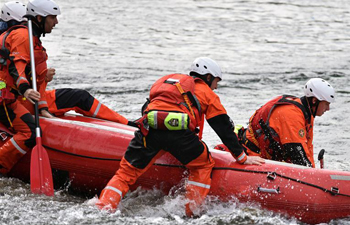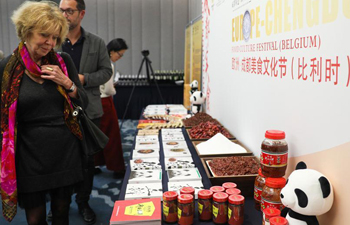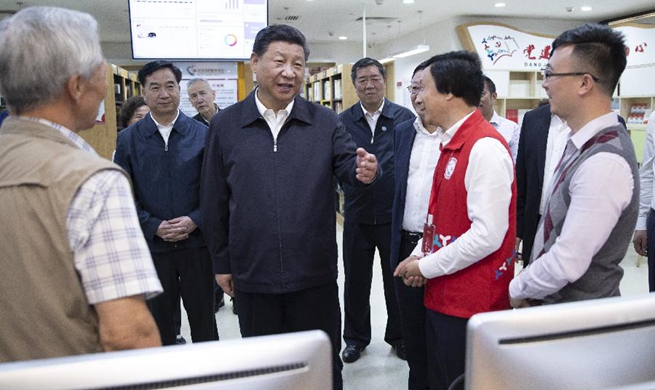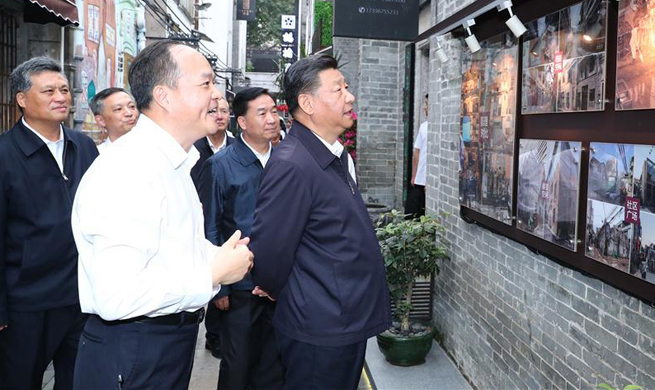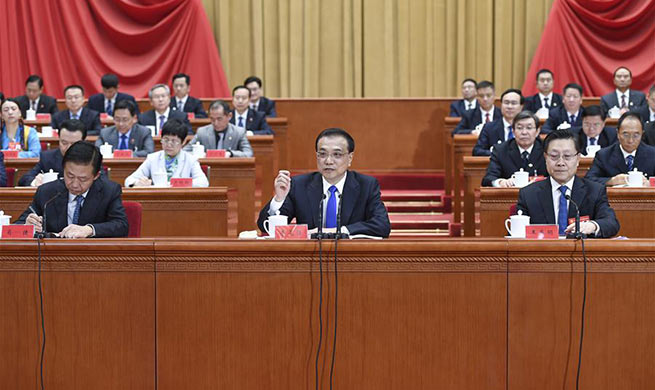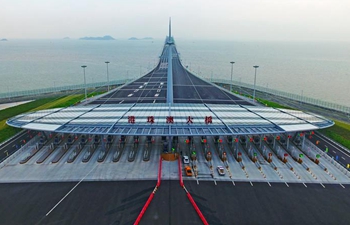BELGRADE, Oct. 25 (Xinhua) -- Western Balkans needs a clear European Union (EU) integration perspective, especially in the light of growing international risks and political instability of the region, Montenegrin President Milo Djukanovic said Thursday.
Djukanovic made the statement at the Economic conference Montenegro 2018 that he opened on Thursday in the coastal city of Budva, together with Austrian Chancellor Sebastian Kurz.
The two-day annual conference was entitled "Balkan and European union -- a five-year cycle of the Berlin Process".
It was also attended by officials of the regional countries as well as representatives of international financial institutions and investors, presidents of the chambers and associations, as well as representatives of successful companies that do business in the Western Balkans.
Djukanovic said that the "vision of united Europe appears blurred, while the perspective for EU accession for candidate countries seems uncertain".
According to him, the main reasons for this lie in the political problems and risks in Europe, as well as the upcoming elections for the European Parliament "whose results could change the essence of the EU as we know it" -- in case of victory of extreme populist parties.
"Regional relations are still burdened by sensitive bilateral issues from the nineties. If, as expected, Macedonia resolves its decades-long conflict with Greece, there is a hope that the most sensitive issue will find its solution -- relations between Serbia and Kosovo," Djukanovic said.
Kosovo unilaterally declared independence from Serbia in 2008. Serbia rejects it and considers Kosovo its own province.
The EU needs to develop clear answers to these challenges, Djukanovic said in a statement released by his cabinet.
He urged the EU to help the infrastructural development of the Western Balkans, explaining that this would be the biggest contribution to regional countries to overcome their underdevelopment.
Kurz assured that the EU cannot be complete without the Western Balkans and said that the integration can become functional only through cooperation in politics and economy.
"In the long term, this region can maintain security and stability only if it is a part of the EU," he said, explaining that the migrant crisis once again revealed the key value of this region for the EU.
Kurz praised the European perspective of Montenegro as well as Serbia, estimating that it looks "better than ever".


